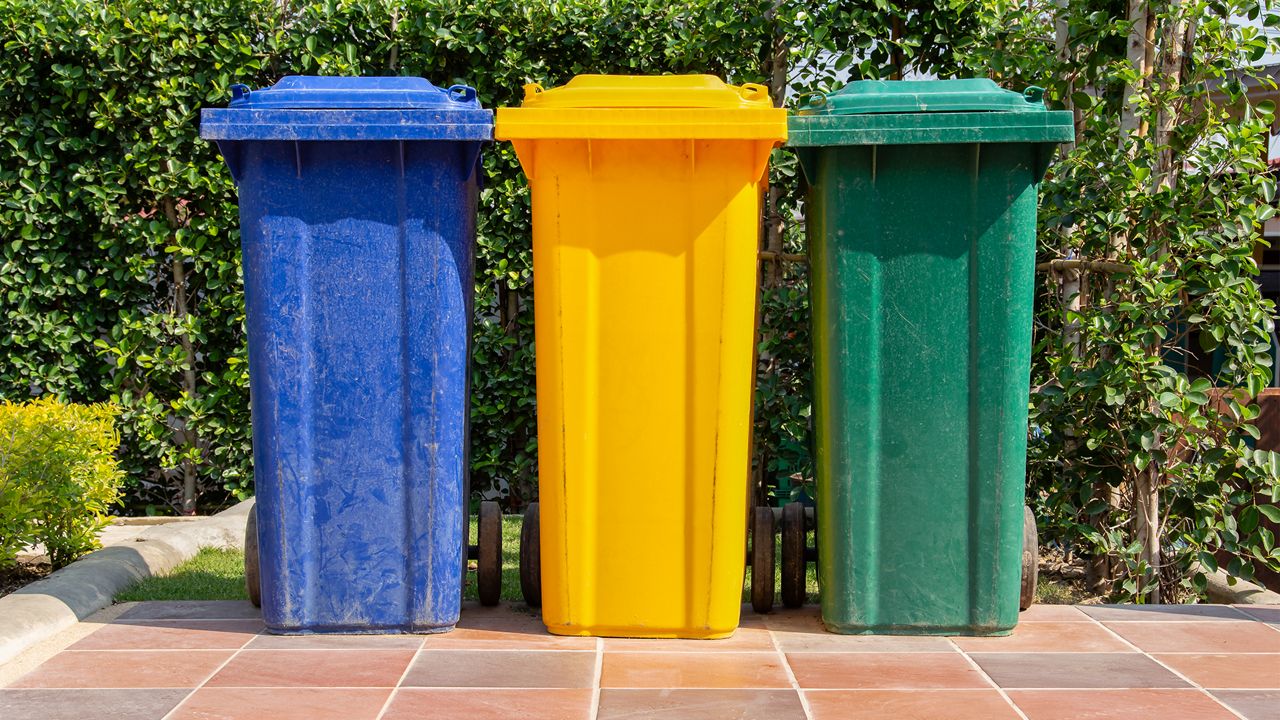NEWPORT BEACH, Calif. — In the two years spokesperson John Pope has worked for Newport Beach, he’s seen firsthand the challenges with messaging for COVID-19.
Now there’s a new challenge: wrangling some 30,000 households into recycling organic waste instead of tossing it in the trash.
A state mandate from Sacramento has compelled cities across the state to distribute green bins to go alongside recycling and trash receptacles. Now the state has put in place hefty fines should cities choose not to comply and has leaned on these municipalities to enforce the rules upon their residents.
“The reaction is mixed. Most people understand this is a state mandate, and it’s not something the city is pushing,” Pope said. “The number of people who have said, ‘I don’t like this and I don’t want to participate’ is pretty minimal and there are a lot of people who see this as a necessary step to protect the environment.”
Some cities have pushed back their rollout date a full year. Newport Beach decided not to apply for an extension and began implementation Feb. 1. The city is delivering 400 to 500 new bins a week under Senate Bill 1383.
The strategy decreases waste on overburdened landfills while attempting to curb the greenhouse gases produced by rotting fruits, vegetables and baked goods.
Landfills recently took on an extra burden once counties across the state could no longer offload certain plastics to Chinese buyers. That enhanced the need for new space, accelerating the timeline for new landfills in some counties.
But existing recycling rules have already been difficult for people to follow. While bottles are recyclable, other items may not be. Pizza boxes can be recycled, but not if they’re covered in grease. And many items have different symbols and numbers meant to guide people to the right choice.
The new strategy is simpler. It asks consumers to put coffee grounds, banana peels and even greasy pizza boxes in the new bin.
New government programs that require a change in behavior always have steep learning curves. Other programs, like new toll roads, can take months to catch on, slamming violators with hefty fines.
“We knew education and outreach was going to be a major component of this program and getting people used to a pretty major behavior change from where we’ve been,” Pope said.
The city has invested about $50,000 in education, Pope said, matching a state campaign that includes mailers, a booklet distributed with the new receptacles, and an instructional video.
Residents can put lawn clippings and leaves in the new bins, which can be as large as 96 gallons or as small as 36 gallons. Pet waste, under the program, is a contaminant and should be thrown in the trash.
The key, Pope said, is that there’s little foreseeable change in what will be allowed in the organic waste bins. Unlike recyclables, California doesn’t sell organic waste and won’t have to make adjustments based on decisions made by other nations.
Plus, Pope said, the program has already been successful in other cities.
“That tells us this can work. The consumers, in time, can adapt and make organics recycling successful,” he said.
While Pope said there has been minimal pushback from residents, city officials had to figure out how to find an extra $1.5 million in the budget to handle the annual costs of the program.
“A mandate that’s obviously not being paid for by the state puts a substantial burden on the city,” said Newport Beach City Council member Will O’Neill. “Failure to toss a banana peel in the right bin shouldn’t be a criminal act.”
The city expects the rollout of its green, organic waste bins to be completed by March 1.



